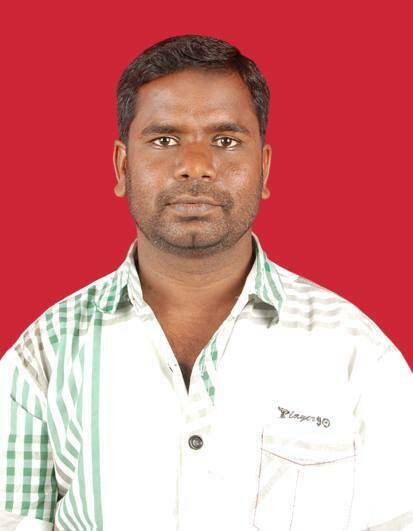Courageous little girl’s story enrages First Nations community but, somehow, hope remains
Advertisement
Read this article for free:
or
Already have an account? Log in here »
To continue reading, please subscribe:
Monthly Digital Subscription
$19 $0 for the first 4 weeks*
- Enjoy unlimited reading on winnipegfreepress.com
- Read the E-Edition, our digital replica newspaper
- Access News Break, our award-winning app
- Play interactive puzzles
*No charge for 4 weeks then billed as $19 every four weeks (new subscribers and qualified returning subscribers only). Cancel anytime.
Read unlimited articles for free today:
or
Already have an account? Log in here »
Hey there, time traveller!
This article was published 31/05/2023 (324 days ago), so information in it may no longer be current.
It’s well known that the Catholic Church has a history of sending abusive employees to First Nations communities.
In yet another case in a Catholic-run institution, this week Little Grand Rapids RCMP charged priest Arul Savari with sexual assault after an eight-year-old girl reported the alleged incident to her family.
Police believe Savari has victimized others and are investigating at nearby Pauingassi First Nation, where he also worked.
In response, Little Grand Rapids residents have had enough. After a community meeting Tuesday, members told Chief Oliver Owen to evict the church.
Arul Savari, 48, has been accused of sexually assaulting an eight-year-old girl at a Roman Catholic church on the Little Grand Rapids First Nation. (Facebook)
“We don’t want the church here,” Owen announced to media.
There are, literally, thousands of arguments to support banning the Catholic Church from First Nations communities. Most begin with the history of violence.
We are only learning now, for instance, about the decades of rampant abuse in Catholic-run residential schools.
Last fall, APTN Investigates released a report showing that 82 priests, nuns and other church employees had been named in 146 lawsuits throughout the 1990s and 2000s, alleging physical and sexual harm at eight Catholic-run residential schools in Manitoba.
The problem, as in most abuse cases, is survivors aren’t believed or, by the time they are, evidence is so old survivor accounts are difficult to corroborate.
Take the recent acquittal of retired priest Arthur Masse, who was accused of assaulting Victoria McIntosh at Fort Alexander residential school in the late 1960s. Court of King’s Bench Justice Candace Grammond concluded that, while she believed the assault happened, she could not determine who committed it.
In the interests of full disclosure: McIntosh was one of my students at the University of Manitoba. I believe her.
It should never take decades to believe victims. Hopefully, the fact Savari was charged and the victim is believed is evidence of change. Let’s hope so.
The problem, as in most abuse cases, is survivors aren’t believed or, by the time they are, evidence is so old survivor accounts are difficult to corroborate.
The point here is that there is clearly an ongoing systemic problem with the Catholic Church sending sexual predators and abusers to Indigenous communities. This could be a problem with recruitment, training or vetting. I don’t know.
And there’s clearly a problem with the way the church handles reports of abuse.
Savari worked in Little Grand Rapids under the purview of the Archdiocese of Saint Boniface for six years.
It’s hard to believe there were no previous accusations.
Last March, the Jesuits of Canada released the names of 27 priests who were “credibly accused” of sexually abusing minors in several First Nations communities. A trait in all of these cases were that predators were sent to Indigenous communities after suspicious behaviour was alleged elsewhere.
One name on the list is Rev. George Epoch, who abused dozens of First Nations children from 1969-1983 in Ontario after abusing nearly 100 children at institutions in Nova Scotia and Quebec. Victims allege the church was aware of the allegations and sent him anyway.
The Catholic Church has been clearly treating First Nations as a dumping ground for sexual and physical abusers it doesn’t want to deal with.
Knowing the history, perhaps the most remarkable thing is that Indigenous peoples continue to have relationships with the church at all. More than 40 per cent of Indigenous Christians identify as Catholic.
The simple answer is that Catholics are not the same as Catholicism. The more complex answer is that Indigenous peoples apparently can look beyond the church’s violence and systemic problems and, somehow, see hope.
The Catholic Church has been clearly treating First Nations as a dumping ground for sexual and physical abusers it doesn’t want to deal with.
Why? Next month will be one year since Pope Francis made his “penitential pilgrimage” across Canada to apologize for the role of Catholics in running residential schools in this country.
During that visit, tens of thousands of Indigenous peoples gave Catholics the gifts of their time, attention and items such as Wilton Littlechild’s offering of his headdress after the apology in Maskwacis, Alta.
The Pope’s visit followed one by Indigenous leaders to the Vatican. They willingly entered the very institution that called their cultures evil and demanded they be made illegal.
Since the exchange of visits, some remarkable changes have occurred.
Catholic district school boards across the country have committed to Indigenous education.
The Canadian Conference of Catholic Bishops has issued four “pastoral letters” outlining a “new era of reconciliation” and commitments to fulfil compensation promised to residential school survivors.
Catholic leaders such as Rev. Darren Dias from the Toronto School of Theology have publicly argued that Catholics must centralize reconciliation, return stolen land and participate in recovering unmarked graves at residential schools.
This is happening because of the resilience and strength of Indigenous communities, the stories of survivors and the courage of (some) Christians who have stood up to the systemic problems in their own church.
The bravest of all was an eight year old, who shared her story. Let’s all hope she receives more justice, support and love than what Catholics have offered to this point.
She is cause for hope.
niigaan.sinclair@freepress.mb.ca

Niigaan Sinclair
Columnist
Niigaan Sinclair is Anishinaabe and is a columnist at the Winnipeg Free Press.




